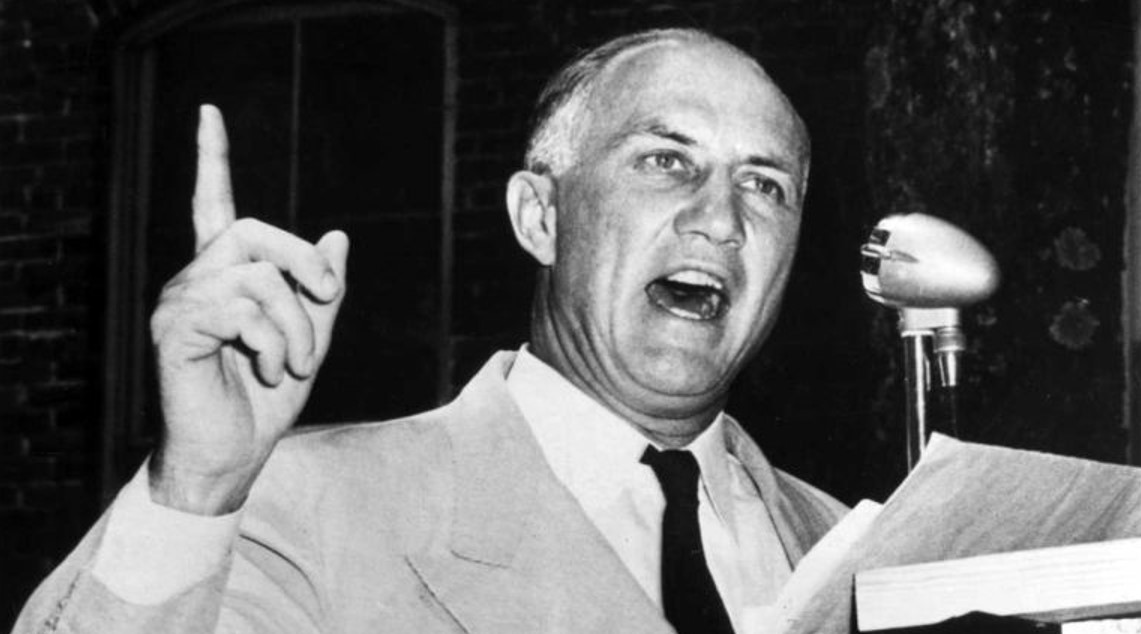The filibuster is slowly killing American democracy
The political maneuver must be abolished
In a democracy, the majority rules. This is something that we take for granted. However, this fundamental aspect of democracy is not true in America, because of the filibuster.
If a member of the Senate disagrees with a particular bill, they have the power to “filibuster” it. This allows them to continue the debate on the bill indefinitely, and prevent the bill from being voted upon. It takes votes from 60 senators to “break” a filibuster and allow action to be taken on a bill. In today’s incredibly partisan political atmosphere, the filibuster has become an especially powerful tool to kill legislation, Brennan Center for Justice.
The filibuster has gained notoriety during President Biden’s administration. For example, recent bills like the Equality Act, which would prohibit discrmination based on sexuality and gender, and the For the People Act, which would uphold voting rights, are both unlikely to be passed as a result of the filibuster, according to Stacker.

Although the filibuster has only begun to become controversial in recent years, we can learn much from its sordid past. The filibuster has always been a way for those supporting unpopular and unjust causes to subvert the will of the people.
For example, filibusters were used to prevent votes on bills addressing slavery, the lynching of African Americans and voting discrimination, according to the Brennan Center for Justice. Sen. Strom Thurmond of South Carolina famously filibustered the Civil Rights Act of 1957, speaking continuously for 24 hours in an unsuccessful bid to prevent the bill from passing. Here, the filibuster allowed one man to perpetuate the racism felt by millions.
However, the filibuster is not simply a relic of the past. Unfortunately, it is becoming increasingly prevalent in today’s politics. The use of the filibuster has been steadily increasing since the 1960s, to the point where the action is taken hundreds of times during each of the Senate’s legislative sessions, according to The Week.
It is no coincidence that as the filibuster has been used more frequently, Congress has become less productive. In 2020, only 28 laws were passed, an all-time low, according to Axios. This is because any controversial legislation can simply be blocked via filibuster, since neither party has the 60 votes needed to overpower the other side. The filibuster has completely destroyed American democracy, to the point where Congress is rarely voting on and passing bills anymore.
The legislative branch of our government exists to pass laws. That is why we do not have a dictatorship, in which the president rules by decree. Congress is supposed to ensure that the interests of people, regardless of region, race or class, are respected.
However, some legislators continue to defend it. For example, in June, Sen. Kirsten Sinema, a Democrat from Arizona, claimed that eliminating the filibuster would lead to instability in an opinion article for the Washington Post. Sinema argues that without the filibuster, as each party gets elected, they will pass new laws and repeal any old ones they disagree with.
Sen. Sinema’s case for the filibuster is laughable. Laws getting passed and repealed depending on who’s in power is a necessary part of democracy. If people disagree with a particular bill or program, they will show their displeasure at the ballot box. This allows Americans to experience the actual effects of policies, and make judgements for themselves.
There is no good reason to keep the filibuster. Not only is the filibuster not in the Constitution (it arose out of a legal loophole), it also has no equivalent in other democratic countries, according to The Conversation.
The filibuster has to go, and it must go now. America is facing a host of challenges right now, from systemic racism to climate change. If we want to address these issues effectively, we can’t be held back by something like the filibuster. The time has come to take a stand for democracy in America, and we must not back down.
Keshav is a senior and one of the Senior Opinion Editors for the Epitaph. In his second year in journalism, he's hoping to share his passion...











